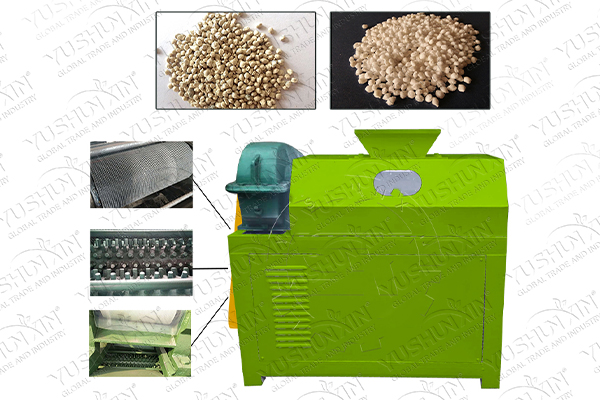In the modern agricultural landscape, sustainable practices and eco-friendly products have become pivotal. One such innovation is the production of bio NPK (Nitrogen, Phosphorus, and Potassium) fertilizers using a roller extrusion granulator. This method offers an effective way to produce high-quality fertilizers that support plant growth while maintaining environmental integrity. In this article, we will explore the detailed process of utilizing a roller extrusion granulator for the production of bio NPK fertilizers.
Understanding Roller Extrusion Granulation
Roller extrusion granulation is a dry granulation technique widely used in the fertilizer industry due to its efficiency and eco-friendly nature. Unlike wet granulation, it requires less energy and water, reducing overall production costs and environmental footprint. The process involves compressing powdered raw materials into dense granules by forcing them through rollers with high pressure. Click here to get more!
Raw Material Selection
The first step in producing bio NPK fertilizers is selecting appropriate raw materials. Typically, bio-based materials such as composted manure, bone meal, and plant residues are combined with mineral elements like urea, phosphate rock, and potassium chloride. These components should be finely ground to create a homogenous mixture that ensures uniform nutrient distribution in the final product.

The Granulation Process
- Preparation and Mixing: The selected raw materials are weighed and thoroughly mixed to achieve a consistent blend. This step is crucial in ensuring each granule contains the desired nutrient ratio of nitrogen, phosphorus, and potassium.
- Feeding and Compression: The mixture is then fed into the roller press granulator. Here, the material passes through counter-rotating rollers that apply high pressure, compacting the powder into denser granules. The rollers are designed with specific patterns that determine the size and shape of the granules, which can be adjusted according to specific production requirements.
- Screening and Coating: Once formed, the granules are screened to separate any oversized or undersized particles, ensuring uniformity in the final product. A coating process may be applied to enhance the granules’ resistance to moisture and improve nutrient release properties.
YUSHUNXIN can provide you bio NPK fertilizer making line, from raw material mixing to bagging biofertilizer NPK granules. Welcome to consult!
Advantages of Roller Extrusion Granulation
- Cost-Effective: The dry granulation process reduces energy consumption and water usage, making it more economical compared to other methods.
- Environmentally Friendly: Producing bio NPK fertilizers with this method minimizes waste and pollution, aligning with sustainable agricultural practices.
- High Efficiency: Roller granulators can handle large production volumes, offering high output with consistent product quality.
Conclusion
The use of a roller extrusion pelletizer for producing bio NPK fertilizers is a promising approach in sustainable agriculture. This technology not only supports efficient fertilizer production but also contributes to ecological balance. As the demand for environmentally friendly agricultural products continues to rise, adopting innovative methods like roller extrusion granulation becomes increasingly vital for farmers and producers worldwide. If you want to produce biological npk fertilizer pellets, please visit:https://www.biofertilizerproduction.com/product/roller-compactor-granulator-for-bio-fertilizer-manufacturing/